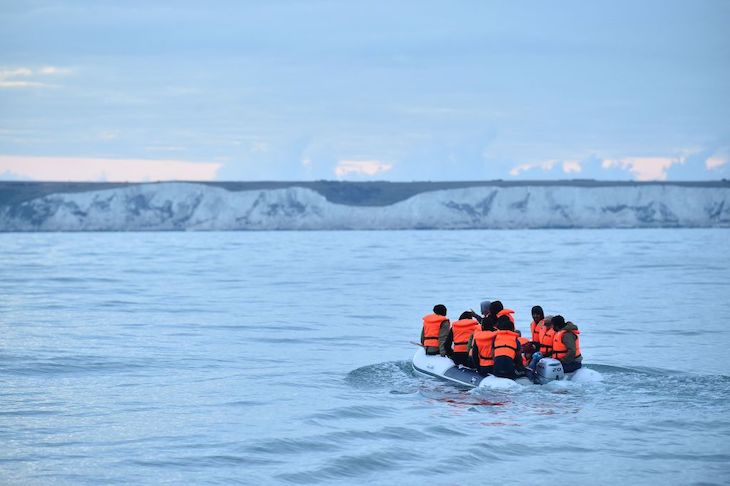In its simple and comprehensible judgment, the Supreme Court has dealt a crushing blow to the Home Office’s Rwanda policy this morning.
The court upheld the decision of the Court of Appeal that the policy was unlawful. It reached that view because it believed there were substantial grounds to think that asylum claims would not be properly determined by the Rwandan authorities. That would mean that asylum seekers might be returned to a country where their life or freedom would be threatened, or where they would be subject to a risk of torture or inhuman or degrading treatment.
The plan now looks dead in the water
This would be contrary to the principle of ‘non-refoulement’ – a core principle of international law set out not only in the European Convention on Human Rights (ECHR), but also other international treaties including the Refugee Convention.
The court noted that the UK parliament had given force to these treaties in several domestic statutes, including:
- The Human Rights Act 1998;
- The Asylum and Immigration Appeals Act 1993;
- The Nationality, Immigration and Asylum Act 2002;
- The Asylum and Immigration (Treatment of Claimants etc.) Act 2004.
The court made it made very clear that its decision was not based solely on the UK’s international law obligations under the ECHR.
In reaching its conclusion, the Supreme Court cited evidence provided by the UNHCR (the UN Refugee Agency) that argued Rwanda has a poor human rights record. The country has been criticised by the UK government for ‘extrajudicial killings, deaths in custody, enforced disappearances and torture’ and the UNHCR says there are serious and systematic defects in its procedures and institutions for processing asylum claims. The UNHCR had raised ‘at least 100 allegations of refoulement and threatened refoulement.’
The judgment also cited evidence that Rwanda had failed to abide by assurances which it had given to the government of Israel under an agreement for the removal of asylum seekers.
The court acknowledged that changes and ‘capacity-building needed to eliminate the risk’ might be delivered in the future, but it is hard to imagine that such changes can be delivered within the current parliament. As the government is not permitted to appeal the decision to the European Court of Human Rights, the plan now looks dead in the water.
Whatever one’s view on the merits of the Rwanda policy and its aim of stopping the small boats, the policy was, to use the official parlance, ambitious. Other countries, such as Italy and Austria, are now planning to introduce similar measures to combat illegal migration. But unlike our European neighbours, the UK government was not just seeking to process asylum cases abroad – it also wished to move all responsibility for successful asylum seekers to Rwanda.
The five-year arrangement with Rwanda has cost the UK government £140 million and there would have been further payments for each person sent to Rwanda. But the policy always appeared more performative than practical. Migrants would have faced an unlucky dip to see if they would be deported. In December 2022, Home Office minister Robert Jenrick MP acknowledged that while the number of people that could be sent to Rwanda was ‘uncapped’ Rwanda would only have taken an initial 200 people, and would have to ‘scale up capacity once flights begin.’
The plan was supposed to have a deterrent effect. Yet the permanent secretary at the Home Office stated in a letter to the then Home Secretary Priti Patel, that ‘evidence of a deterrent effect is highly uncertain’ and that it could not be quantified with sufficient certainty to show that the policy demonstrated value for money. He unusually required a written direction to proceed.
Even former Home Secretary Suella Braverman recognised that the plan might not be successful, arguing that the government should have taken stronger legislative measures, such as ‘notwithstanding clauses’ to secure the Home Office against the prospect of defeat in the courts. As an aside, while such measures might have secured the government a victory in the domestic courts, they would not have prevented any breaches of international law and so would have pushed the issue into the hands of the Strasbourg court.
It is also worth mentioning that the Rwanda deal did not have clear parliamentary support. Rather than signing a formal treaty with Rwanda, the government cynically brokered a political arrangement, or ‘memorandum of understanding’. This ensured that it became effective immediately and was not subject to proper parliamentary scrutiny. A treaty would have been laid before parliament for 21 sitting days and the House of Commons would have had a theoretical power to debate the agreement and delay ratification.
The House of Lords International Agreements Committee was scathing about the government’s approach, noting that it meant that parliament had no opportunity to consider whether the arrangement was ‘compatible with the UK’s obligations under international law; whether the policy objectives are coherent and achievable, the financial implications, the basis in domestic law for its implementation; or whether any safeguards ought to have been introduced.’ These deficiencies have proved critical now.
The Supreme Court judgment, rather cleverly in my view, made very plain that the problems with the Rwanda plan are not simply down to the UK’s membership of the ECHR. This may help Rishi Sunak resist impractical demands to exit the Convention and instead seek to find more sensible solutions to problem of small boats. It is notable that the UK’s recent agreement with Albania has resulted in the return of a large number of migrants.
In her poisonous resignation letter to the Prime Minister, Suella Braverman stated: ‘if we lose in the Supreme Court, an outcome that I have consistently argued we must be prepared for, you will have wasted a year and an Act of Parliament, only to arrive back at square one.’ Even a stopped clock is right twice a day. We can only hope that our new Home Secretary, James Cleverly, is more of a pragmatist.






Comments